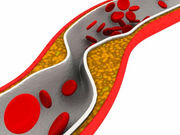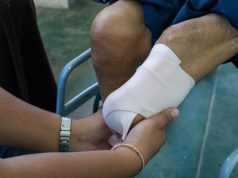New guidelines emphasize importance of structured exercise program, tailored to individual patients
MONDAY, Nov. 14, 2016 (HealthDay News) — In a Clinical Practice Guideline published online Nov. 13 in Circulation, evidence-based recommendations are presented for the management of peripheral artery disease (PAD), focusing on lifestyle modification as well as medical treatment.
Marie D. Gerhard-Herman, M.D., from Brigham and Women’s Hospital in Boston, and colleagues conducted a systematic literature review to update treatment recommendations for PAD.
The researchers note that vascular procedures to improve blood flow to the legs are recommended for patients with less severe PAD but who continue to have significant limitations in walking, despite treatment with medications and a structured exercise program. Due to the risk for developing blood clots, and suffering a heart attack or stroke, medical management is recommended for all patients with PAD, including statin use. Antiplatelet therapy should also be considered for patients with PAD, and in certain circumstances, such as after vascular surgery or stenting procedures, dual antiplatelet therapy is recommended. New recommendations include participating in a structured exercise program, which should be individualized to the patient and should specify the type, frequency, intensity, and duration of exercise. Patients are strongly advised to avoid secondhand smoke. They should also get an annual flu vaccine in order to avoid the cardiovascular complications of influenza.
“Periodically reassessing how we manage and treat complex diseases by incorporating the latest evidence is critical to ensure that clinicians are equipped to provide optimal care for their patients,” Gerhard-Herman said in a statement.
Several authors disclosed financial ties to the pharmaceutical and medical device industries.
Full Text
Copyright © 2016 HealthDay. All rights reserved.








